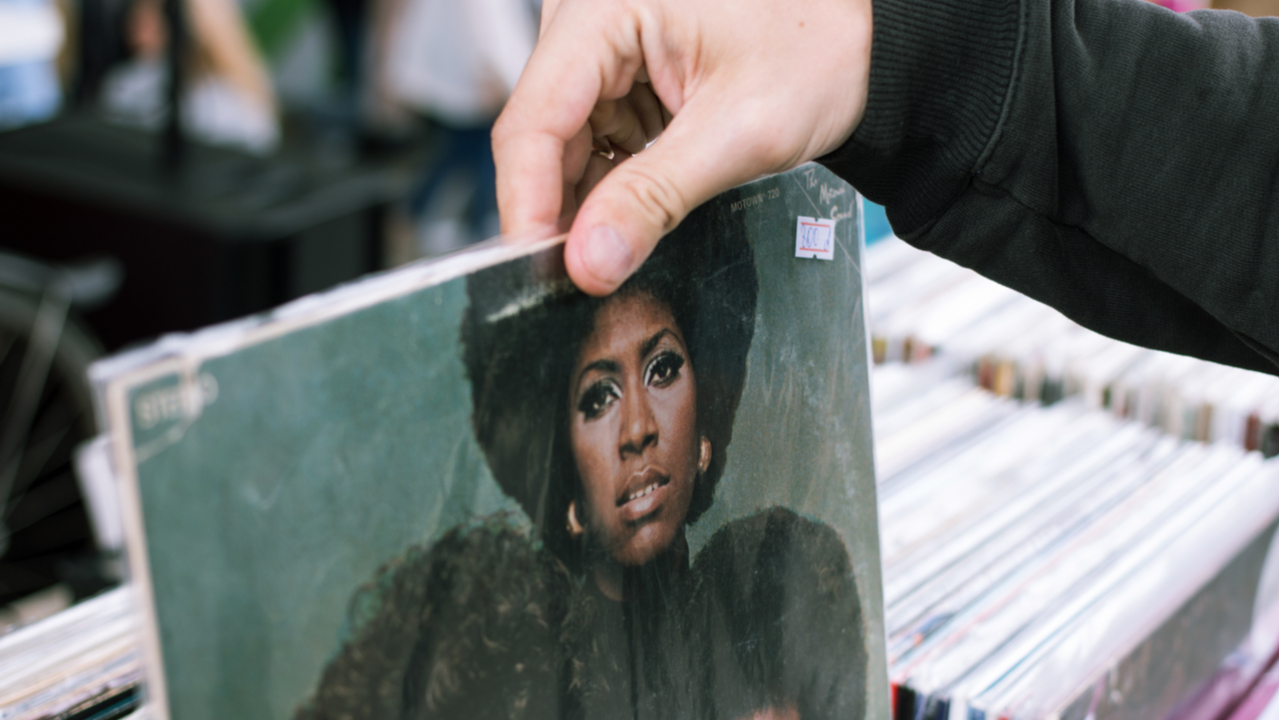Record stores could cease to exist, thanks to Covid-19
Opinion: You love your local record store, right? Well then use it or risk losing it.

Sign up for breaking news, reviews, opinion, top tech deals, and more.
You are now subscribed
Your newsletter sign-up was successful
At a press conference in New York’s Waldorf Astoria hotel in June 1948, Columbia Records introduced its long-playing vinyl discs – and the format that refuses to die was born. A 12-inch vinyl disc that turned at a mere 33.3 revolutions per minute challenged the 10-inch, 78rpm shellac standard – and by 1956, every major recording company in the United States had seen the light. 78rpm was no more, and the LP became the world’s favorite music storage format.
Obviously it hasn’t been all plain sailing since. Vinyl has been read the last rites on numerous occasions, most recently during the digital revolutions pioneered first by the compact disc and, more recently, by the music streaming uprising spearheaded by Spotify.
But somehow vinyl has survived and, at least until recently, thrived – relatively speaking, anyhow. And along with the survival of the format, sales of record players have held reasonably steady too ≠ to the point that turntables comfortably outsold CD players during the second half of the last decade. Any number of manufacturers have been doing quite nicely with their range of record players.
But well over 70 years since that Waldorf Astoria press conference, the music industry as a whole is facing unprecedented challenges – and by the standards of retailers, the record store is right on the front line.
- Record Store Day 2020: everything you need to know
- The best turntables of 2020
Life after Record Store Day
According to the Entertainment Retailers Association (and it should know) there were 8450 retailers selling music in the UK in 2019. Who’d like to have a guess at how many will be left by the end of 2020?
Of course, 2020 has been an appalling year for every aspect of the economy – but there’s no doubt the music industry in general, and record stores in particular, face the most uncertain of futures. Performers can’t perform, record stores can’t open – or, if they can, they can admit just a few people at a time. Personally, I’ve always found an uncommon degree of satisfaction in whiling away an hour or two flicking through the racks, asking the staff what this fascinating music they’re playing is, eyeing up other folks’ choices of music… but none of this has been possible since the start of the year. And there’s a strong sense that if a record store falls on such hard times that it’s forced to close – as many surely must – it’s going to be nigh-on impossible for it to reopen.
Even Record Store Day – which since its inception in 2008 has developed into the biggest trading day of the year for independent music retailers, a sort of vinyl equivalent of Christmas – won’t be able to support independent retailers single-handed. The pandemic-driven move from a single big blow-out to three individual ‘drops’ (the third and final of which is October 24) has helped maintain the profile of the 200+ record stores that are involved… but what then?
Sign up for breaking news, reviews, opinion, top tech deals, and more.
The record industry has survived numerous threats to its business model this century – the inexorable rise of digital streaming chief among them – but a medical crisis of global proportions is in a different league. Vinyl has enjoyed something of a sales renaissance during the last decade, but that was starting from a miserably low base – and in 2019, sales of music in the UK from brick-and-mortar retailers was less than 13% of the total of sales of physical formats. With months of punishing restrictions on retailers’ ability to trade, the figure for 2020 seems certain to be considerably lower.

So is there even a case to be made for the record store in the current climate? After all, buying online is simple, convenient and, often, more affordable than undertaking the same transaction in person. Would it not be easier – kinder, even – to let record stores go the same way as high street store Woolworths in the UK or Borders in the US? Would anyone but the most dedicated crate-diggers miss them if they were gone?
The difference between a record store and a branch of Woolworth, though, is fairly obvious. Woolworths, like the overwhelming majority of physical retailers, was purely functional – but the record store is a destination, the venue for a treat or the indulgence of a hobby. In the UK at least, a record store is closer to a pub than it is to a regular retail outlet – after all, in how many other shops can one get on first-name terms with the staff? Or get a comfy reputation as a regular? Apart from the pub, are there any other transaction-based destinations where the staff have a good idea of what your ‘usual’ might be? Of course there aren’t.
Physical stores in general were suffering even before Covid-19 stuck its horribly contagious oar in. The lure of online shopping, its convenience and, yes, its relative affordability, had led to any number of bricks-and-mortar retailers packing up and packing it in – or, at the very least, moving their operations online. Record stores have, by and large, managed to hang in there so far – quite often because their owners consider themselves to be more than shopkeepers or straightforward service-providers. They’re engaged in a vocation rather than simply a job. But the online model isn’t quite as straightforward for record stores – their unique selling point is the communal, and community, aspect of their operation. As online entities, they’re merely more expensive versions of multinational online retailers.
So if you’re interested in the survival of your local record store, you’ve really only one way to contribute towards its ongoing existence – and that’s to use it. After all, we’re often told that, as consumers, we wield all the power. So we should go ahead and wield it in the same way we do when we pay a little over the odds for organic produce, or fair-trade products, or environmentally sound produce. This way it’s possible to withdraw our consent to a business model that results in obscene profits for global behemoths, those companies that contribute next-to nothing to our local or national economies. And we can help to prop up a local business that’s in dire need of our support at the same time.

Simon Lucas is a senior editorial professional with deep experience of print/digital publishing and the consumer electronics landscape. Based in Brighton, Simon worked at TechRadar's sister site What HiFi? for a number of years, as both a features editor and a digital editor, before embarking on a career in freelance consultancy, content creation, and journalism for some of the biggest brands and publications in the world.
With enormous expertise in all things home entertainment, Simon reviews everything from turntables to soundbars for TechRadar, and also likes to dip his toes into longform features and buying guides. His bylines include GQ, The Guardian, Hi-Fi+, Metro, The Observer, Pocket Lint, Shortlist, Stuff T3, Tom's Guide, Trusted Reviews, and more.